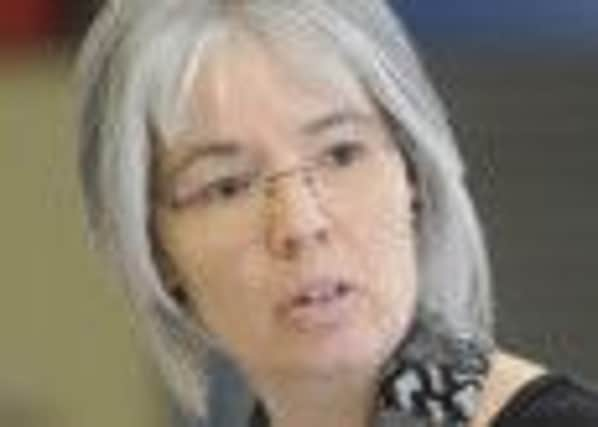Polmont launches young offenders parenting scheme


Sue Brookes, the governor of Polmont Young Offenders Institution, near Falkirk, said that children whose mother or father has been in jail are around four times more likely to end up being convicted of a crime, but there is not enough being done to help them.
“We know that unfortunately if your mum or dad have been to prison you are four times more likely to go to prison yourself, and that’s a tragedy,” she said. “I would like there to be a lot more focus by community partners and government on the children of offenders who are currently in custody.”
Advertisement
Hide AdAdvertisement
Hide AdScotland’s prison population is around 8,000 but exactly how many children have a parent in jail is unknown.
Brookes, who has worked for the Scottish Prison Service for three decades, believes these youngsters are affected by their family situation and need support to deal with the fallout and the stigma.
“Most of these kids in fact hit all of the government parameters for help with truancy, exposure to domestic abuse, exposure to substance abuse, general neglect, poor educational experience,” she said.
“If we focused on these kids and gave them support in a more targeted way then potentially we could break the cycle of crime in families.
“I would like there to be some kind of service so that if your mum or dad is in prison you would – automatically – be given some kind of support for yourself, because we know these kids are going to struggle for all sorts of reasons.”
At Polmont, Brookes is preparing to launch a scheme to help inmates aged 16 to 21 prepare themselves for parenthood, in the hope that they can be taught how to bring up their children and avoid the chaotic home lives associated with crime.
Lessons will range from changing nappies to resolving conflicts without violence.
But Brookes said the unaddressed problem was that social services and government departments were not doing enough to help those children, particularly in the area of ereavement services.
Advertisement
Hide AdAdvertisement
Hide Ad“A recent piece of research by Nina Vaswani from Strathclyde University, who interviewed more than 30 of the young men here, found that something like 91 per cent had a significant bereavement which has affected their lives. If you talk to the youngsters here you’ll get stories like: ‘I watched my dad being stabbed in the street. My mum was an alcoholic and she died. Then granny looked after us, me and my five brothers, but then granny died, and then we ended up in the jail.’
“That kind of story is really common.”
She went on: “Some offenders at the extreme end here almost need treatment for post-traumatic stress, if they’ve seen their dad hang himself, for example.
“The trajectory into offending starts very soon indeed after the bereavement. If there was better bereavement support, much earlier in childhood, maybe in the school system, then I think a lot fewer of them would end up here.
“At the minute I don’t think we do have very comprehensive bereavement services and, like the parenting programme, it’s another area we’re trying to develop.
“We do have a chaplaincy team who provide excellent support, but I’ve got nearly 600 lads here – we need to do a lot more.”
Brookes said Polmont intends to launch a trial counselling service after its parenting scheme is up and running in the spring, and is currently looking at other sources of funding for such services.
“We are looking at programmes, but again the bigger issue is if we didn’t wait until they came to custody to do that then half of them wouldn’t be here, I suspect.”
Vaswani, a research fellow at the Centre for Youth and Criminal Justice at Strathclyde, said the rate of bereavement at Polmont was hugely inflated compared with the rest of the population.
Advertisement
Hide AdAdvertisement
Hide Ad“What struck me was an unusually high rate of traumatic suicide and murders, accidents, very unexpected deaths and what you could call particularly needless deaths,” she said.
“Many have lost five friends and family members. One 19-year-old had even lost 18 people he knew.
“There are services out there but what I found was take-up was very low, and they’re not compulsory.
“I also found a culture of not talking or delaying talking about bereavement, not knowing how to deal with it, and that can lead to depression and substance abuse, and then crime. And if there is a failure to deal with that, then it will continue.”